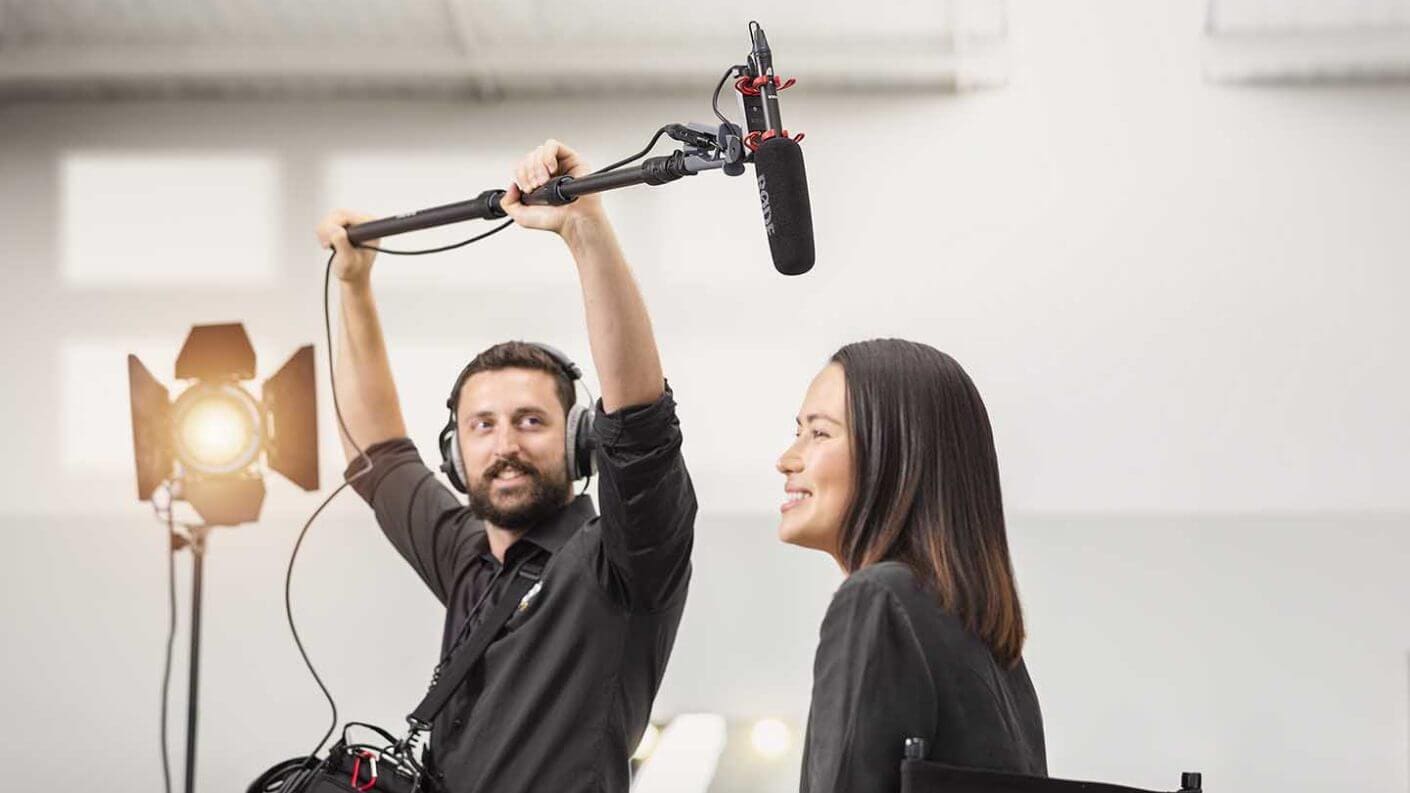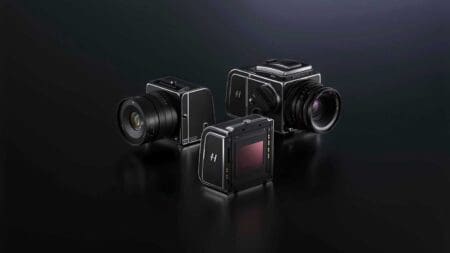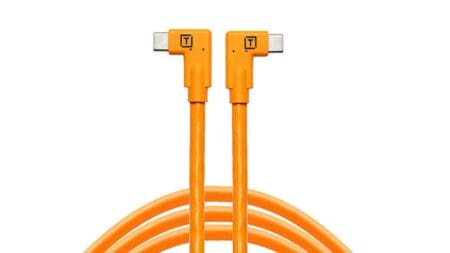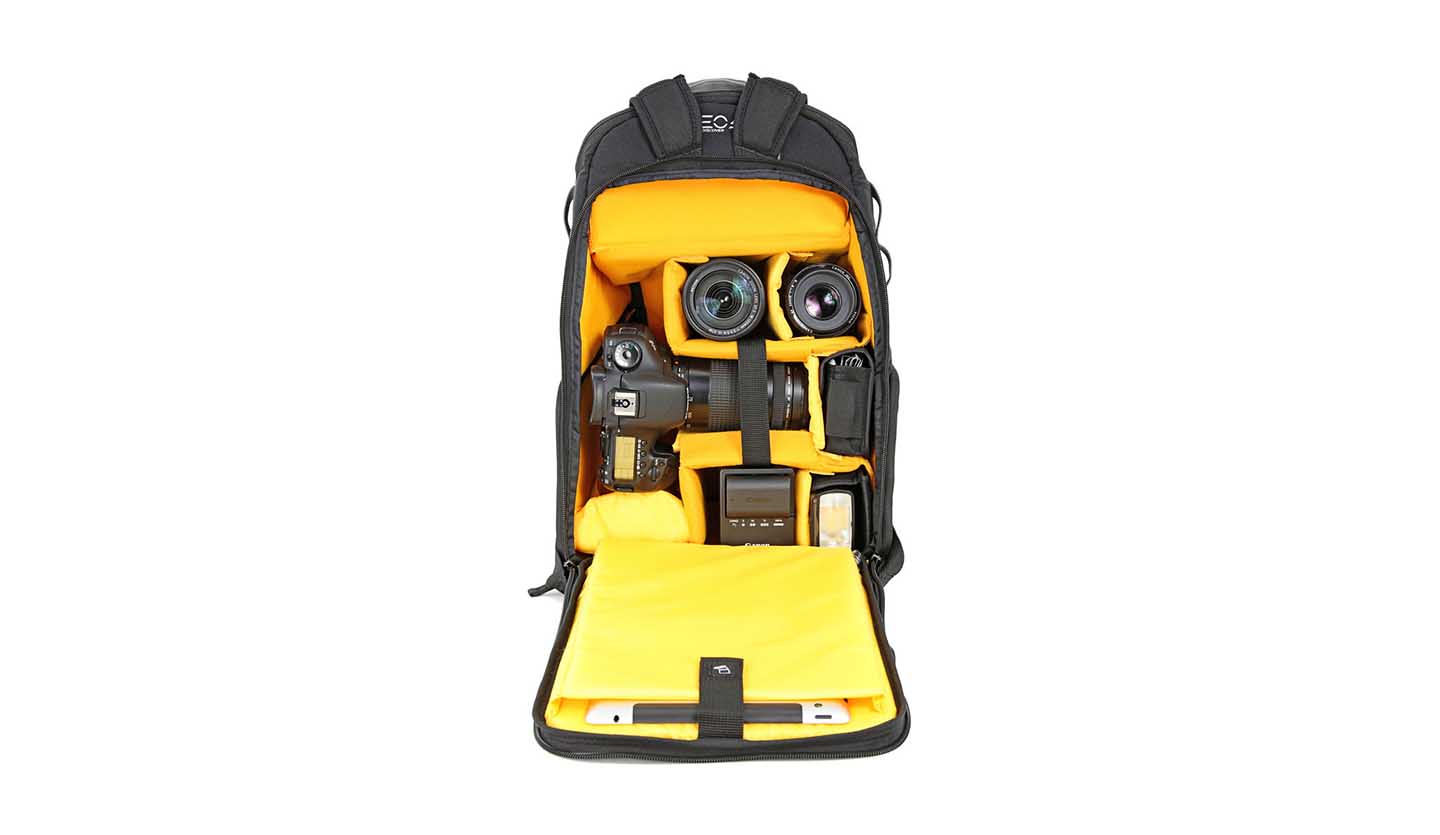If you shoot video, you’ll know all too well that you may need to carry your cameras, lenses, batteries, memory cards, supports, lights, mics, monitors and possibly more for any given shoot. So you can quickly see why it’s crucial to have the best possible bag to transport and keep your gear safe.
In this guide we look at the different types of equipment bags for filmmakers and nominate our best bags for videography to help give you more power and peace of mind.
What you’ll learn
• Why you’ll need bags for video gear
• The different types of camera bags explained
• Key considerations for the type of carrier
• Top buying tips for choosing the best bags for videography
• Our picks for the best bags for carrying video gear
Photographers may be able to get away with a small shoulder bag that just has a camera, a lens, a few extra memory cards and some batteries but that almost always won’t be as simple if you’re shooting videos.
The nature of shooting video means you’ll need to record sound, you’ll almost certainly need a camera support and will probably need to have a hard drive or computer close to hand to download the many gigabytes of footage you’re likely to shoot… and that’s before we mention monitors or lights.
All of this means you’ll need a hardy and reliable bag, backpack or case to carry and protect such additional gear.
To help to guide you through the factors involved, in this blog we’ll examine the different types of equipment carriers, what you should consider when buying bags for your video gear and give our recommended ‘best buys’ of five of the best current camera bags for video kits…
Why you need a camera bag for video shoots
It seems obvious to say so but your choice of bag/carrier will depend on exactly what’s in your kit and what you plan to take out on any location shoot. You may be able to travel light if you’re planning to shoot video hand-held with a mirrorless camera system but, arguably moreso than for stills, you should always be carrying all of the required kit to cover all shooting eventualities…
For example, back in 2010 I was working with a cameraman making films at the FIFA World Cup Finals in South Africa. We’d had a very fruitful trip recording interviews with top photographers and filming behind-the-scenes footage – stadiums, fans, local people and places – in and around Johannesburg.
We’d checked in for our flight back to the UK and were relaxing at a bar when, suddenly, out of nowhere a group of singers bedecked in colourful, traditional African dress burst into song in the departure area. We reached for our cameras but realised we’d packed our mics and camera supports in cases which were already on a truck driving out to our plane. So, lesson learned, it’s always best to keep all of your kit with you if you can!
To come back to the point about what kit you need to carry, this may vary from shoot to shoot, so you may need to consider if you invest in a combinations of carriers – for example, a soft shoulder bag, a backpack or even a hard case if protecting your video gear is of paramount importance.
Best bags for video: the soft options
To be able to carry your camera kit in a backpack, holster or in a bag slung over your shoulder is incredibly convenient for filmmakers who want the ability to quickly pull out their cameras and start shooting. Soft casing varies in the amount of padding, water resistance, weight and durability of the materials based on a manufacturer’s design and specifications.
The advantage of a backpack is that it allows you to share the load of the weight of your gear across your shoulders and back, which can be a huge benefit if you’re carrying all of your gear on a long shoot.
However, backpacks sometimes don’t give you super-fast access to your camera, so a top-loading camera compartment on a backpack is a better choice for ‘run-and-gun’ style shooting for action or news footage. On the other hand a shoulder bag or sling will allow you to quickly grab a camera if you need to react and shoot straightaway.
Holsters – bags that look like large gun-holders – which open from the top typically have a very small form factor and provide quick, easy access to your camera.
Many of them can be worn on a belt, as a belt or as a sling. Shoulder bags can also offer quick access to your camera, lenses and any required filters or supports.
Gear dividers for soft cases are usually made of fabric that can be cleaned with a damp cloth. Dividers can be flexible or rigid and are often padded – they are usually included with a soft-sided bag. Dividers are more durable than foam, but they don’t offer as much protection.
Many bag manufacturers have their own divider system that often includes pockets or pouches to help you to better protect and organise your gear.
Because of the diverse selection of soft-sided bags how they open and close will vary greatly as well. Velcro, clips, zips and buckles tend to be the most prevalent with many bags incorporating more than one of these systems for added protection. Consider which of these works best for you.
Best bags for video: hard cases
A clear and obvious advantage of hard cases is they are crushproof. However, cases are only impact resistant to a certain degree, so check out any impact resistance information that case makers include in their specs. Many larger hard cases will also have extendable handles and wheels for easy transport.
Hard cases are great for storing and transporting gear because they offer more durability and more protection in challenging environments like snow, water, dust and sand. They also tend to be stackable, which is great for storing lots of gear in small spaces.
Hard cases typically feature high-impact plastic polymers, which are light but incredibly durable. When you’re considering shopping for a case the availability of sturdy latches and hinges should be prioritised. Some hard cases come with o-rings – rubber or neoprene gaskets that line the opening of the case – which will allow them to float or be submerged in water for short periods of time.
Hard cases often come unlined, but there are easy ways to pad your case with either ‘pic foam’ (which comes in blocks and can be easily torn to fit your needs) or custom cut foam. Padding a case yourself versus buying a pre-padded case usually comes down to one or more factors, such as the ability to customise your padding, availability and the cost of the case.
It’s worth remembering that all of the advantages of hard cases can also create disadvantages in terms of portability. Even though many hard cases have wheels and/or carry straps, they can also be very heavy.
Repelling water
Whilst a camera bag may be described as ‘water resistant’ in actuality many water resistant bags won’t protect your video gear from a heavy downpour. Some bags feature an additional rain jacket that you can place over the bag for exactly this reason.
Many manufacturers of waterproof and watertight hard cases will have detailed specs on how deep their cases can be submerged, or how long cases can float. The best advice is to do some homework on exactly what water resistant, waterproof and submersible mean with regards to kit bags to ensure your kit has enough protection from bad weather and water.
The role of shooting locations
In many instances, the decision of soft cases versus hard cases will not only be affected by the type of gear you’re carrying but also by how and where you plan on using that gear. The type of transportation available for your gear will often dictate the type of case you’ll need.
Gear that’s to be transported in a boat, plane or train will, ideally, require the sturdiness, padding and locking capabilities of a hard case. Luggage-style cases designed to fit in a plane’s overhead lockers are usually soft-sided due to the weight restrictions on hand baggage; however, they should still have ample padding inside.
A bag design that allows you to easily remove your camera when you go through airport security is a big plus. Having discreet camera bags while travelling is usually a good thing – firstly, it can allow you to quickly pull a camera out of the bag to shoot incognito.
Secondly, it doesn’t mark you out as a ‘target’ who is walking around with lots of expensive camera equipment slung over your shoulder.
If you’re transporting a lot of gear in a vehicle, the stacking ability of hard cases can be advantageous. Consider a hard case if you need to take your gear to locations with extreme environmental factors, such as excessive heat or cold. Locations that expose your gear to torrential rain or blowing sand will also benefit from being in a hard case.
While bags being driven around in a vehicle may not necessitate a specific design, long walks with your gear may make you consider the more lightweight bags like a backpack, shoulder bag or sling.
How to buy the best bag for your videography needs
As you can see from the above the key choices for camera carriers is how much kit you need to bring, how you need to transport it and what access you need to it when you are at the location of your shoot. It’s probably true to say that, until you become more immersed in filmmaking, you may not need to invest in a hard case but that decision may also be swayed by how much protection you want your gear to have.
Anyhow, make sure you have enough storage capacity to cover your equipment on a shoot-by-shoot basis. Always try to consider leaving some extra space to bring extra batteries, memory cards or hard drives over and above your estimated required capacity. It’s much better to have too much space as opposed to not enough. For more in-depth advice about choosing camera bags check out our guide on How to choose the best camera bag for your needs.
Although many other types of bags, backpacks and cases are available this blog outlines the ‘best’ current bags for carrying and protecting your video kit. Don’t forget that you have plenty of other options and remember to always make sure if your needs match our recommendations. Read on for our picks for the best equipment carriers for video shoots.
The best bags for videography you can buy today
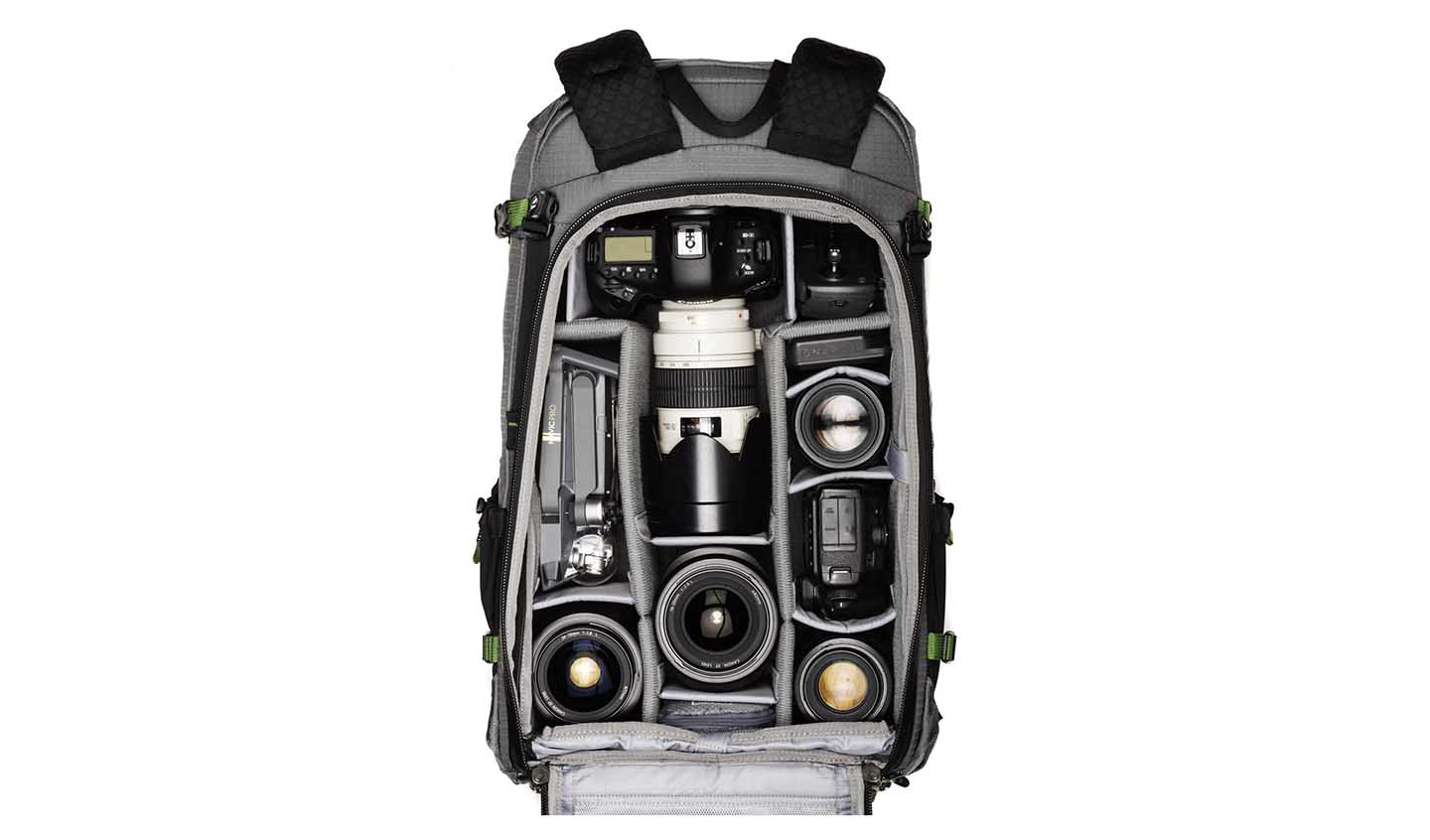
MindShift Gear BackLight Elite 45L
A 45-litre capacity backpack with a firm focus on video kit this has the capacity to hold a DSLR or mirrorless camera with a number of lenses, other accessories, a drone and a camera support.
It includes dividers to allow you to organise and place your gear exactly where you want it. It has a water-repellent coating, durable waterproof Sailcloth build and hardy Aquaguard zips and clips.
Whilst it may not give you the absolute quickest access to your gear this backpack does have several different ways – including back and top panel access – for grabbing your kit and is ideal for those of you who like to shoot out and about, perhaps mixing location shoots with action footage. It features a hip-hugging waist belt and a quick dry back panel.
- Get the Think Tank BackLight Elite 45L for $399.99 from Adorama or for £399.99 from Wex Photo Video
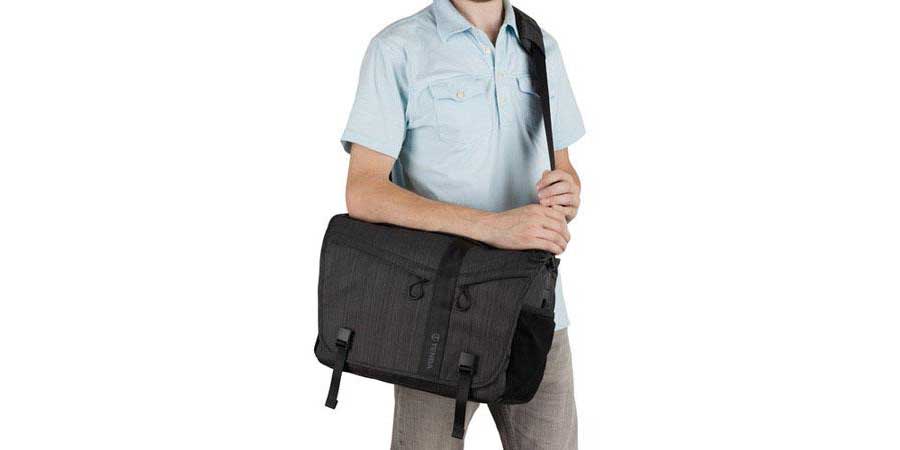
Tenba DNA Messenger 15
A great soft bag choice, this beautiful looking Tenba shoulder carrier is capable of carrying a DSLR kit with two or three lenses (or a mirrrorless system with up to five optics) and up to a 15-inch laptop computer.
It comes with an inner divider system that can be removed and has a reversible WeatherWrap that has a silver side that will reflect heat out or a black side to keep your kit warm in colder conditions.
It’s manufactured from a water repellent fabric and has a waterproof bottom. A flap goes over the front of the bag and it incorporate Fidlock magnetic clips that allow for blind, drop-on attachment and a quick slide release. This bag is a great combination of style and practicality.
- Get the Tenba DNA Messenger 15 for $175 from Adorama or from £114 from Wex Photo Video

Sachtler Doctor Bag 5
You might know Sachtler best for its range of camera supports but the company also produces a range of soft bags for carrying your kit. The Dr.Bag-5 is the largest in the range with an internal length of over two feet. It can cater for larger camcorders or digital cinema cameras and has an extra wide opening for quick and easy access to gear.
You can customise the interior thanks to removable rigid dividers and this carrier even has internal LED lighting so you can view your kit in lower lighting conditions.
It has a padded shoulder strap, an ergonomic carrying handle and side pockets for additional storage space. You gear should be well protected with a Safe-Shell construction and cold-moulded laminate panels.
- Get the Sachtler Doctor Bag 5 for $367 from Adorama or get Sachtler bags from £100 at Wex Photo Video
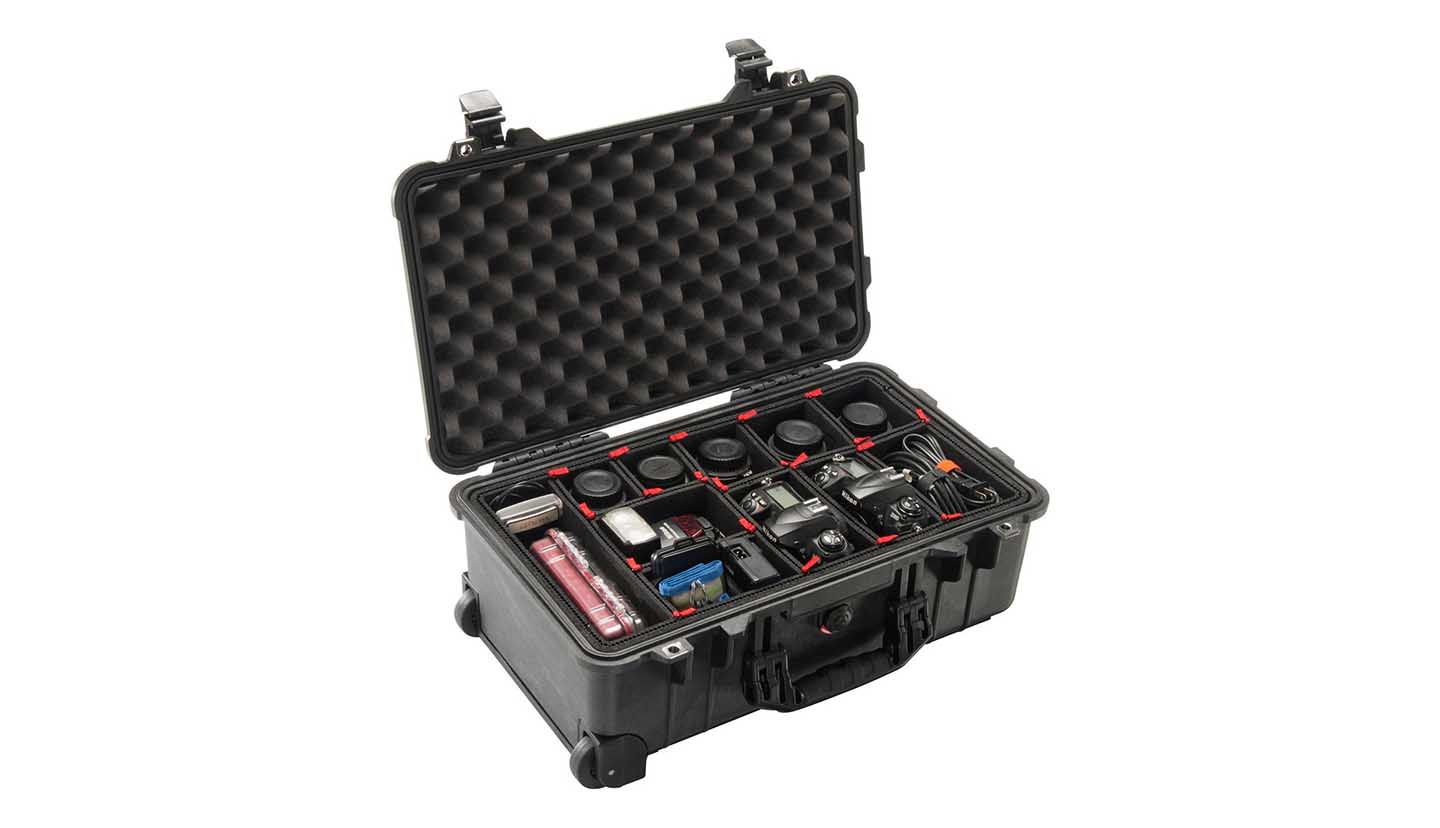
Pelican 1510 case
The Pelican range of cases caters for filmmakers and photographers and offers a number of waterproof, crushproof and dustproof variants. The 1510 model measures 22×13.8x9in, which means that it’s small enough to carry on to a plane as hand baggage (dependent on overall weight).
The case has an extended handle, as well as front and side handles, and has wheels for easy transport. Inside it deploys Pelican’s TrekPak system of rigid panel dividers that give you a huge degree of protection and which can be cut down to your specs.
There’s also 1-inch foam on the bottom and lid of the case, so your kit inside remains protected at all times. The high spec includes O-ring seals, and an automatic pressure equalisation valve.
- Get the Pelican 1510 from $189 at Adorama or from £229 at Wex Photo Video
Vanguard VEO Discover 46
This highly affordable and versatile carrier is a ‘sling backpack’, which can quickly transform from a backpack to a sling thanks to a unique 2-in-1 strap. It is designed to carry a pro-spec DSLR, up to four lenses, other accessories, plus a 13-inch laptop, which can be slid into a rear compartment.
It features strategically placed internal and external pockets, which can carry the likes of lens caps, memory cards, batteries, chargers and cables. It also has an optimal balance tripod carrying system and water resistant and anti-scratch materials on the bottom.
The VEO 46 also has a fully padded and breathable back and an extra stabilising strap when in sling mode to allow you to shoot action ‘run-and-gun’ action footage. A highly versatile and affordable carrier.
- Get the Vanguard VEO Discover 46 for $79.99 from Adorama or for £79 from Wex Photo Video.
Final thoughts
Finding the right bag or case for your gear can be challenging, particularly if this is the first bag or case you’ve ever purchased. Remember to consider how and when you’ll be using your gear and what you see as the most convenient way to carry it all.
You should be able to find a soft bag or case to fit almost any budget. Don’t skimp on your bags and cases. All of your gear deserves proper protection to ensure it lasts a very long time!
A bit like when you buy a camera the best advice for buying a bag is to actually go out and try them out. What might look fantastic on a website might not just be ideal for you in real life – something as silly as a tricky clip might put you off a certain bag or backpack. If you marry up your equipment needs with ease of use, you won’t go far wrong when picking the best bag for you.
